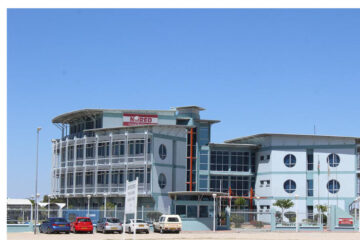Ester Mbathera
Swapo presidential candidate Netumbo Nandi-Ndaitwah is advocating for broader economic participation through targeted support for SMEs and industrial strategies to create sustainable jobs.
Nandi-Ndaitwah made the call at the public discussion event of the party’s manifesto in Windhoek on Monday.
“The days of relying on one or two key sectors must be behind us. Through targeted support for small and medium enterprises (SMEs) and focused industrial strategies, we can create sustainable jobs and ensure that wealth is spread across our society rather than being concentrated in the hands of just a few,” she said.
According to her, the country’s future relies on its youth, and investments in education, sports, and the creative industry are key to ensuring their success.
She linked quality education and skills development to job creation and preparing the youth to compete in the global economy.
She called for quality service delivery and collaboration between the public and private sectors to ensure the successful execution of their manifesto.
The public discussion was held to unpack the themes in the manifesto.
Technical experts from state-owned enterprise government departments and private sectors presented ideas on how the Swapo manifesto policy areas can be implemented.
“As your leader, I do not want us to make statements to our people that we cannot implement and therefore implementation must be the key in all we do,” said Nandi-Ndaitwah.
Swapo parliament candidate, Dino Balotti spoke on the policy of inclusive economic growth, industrialisation and job creation and explained the need to support startups to allow them to become self-sustainable.
He argued that by intentionally prioritising Namibian products in local stores, the country could foster economic growth at home.
“When you go to the store, whether it be Shoprite, Pick and Pay, or Spar, the majority of the goods are South African goods. And if we were a bit more intentional around those goods being Namibian goods on Namibian shelves, then we could see growth at home. And this will remedy startups sort of failing within the first three years,” he said.
Michael Humavindu, the executive at the National Planning Commission, emphasised the importance of an election plan to ensure the party’s promises and intentions are embedded within the governance system.
“That means that a minister who is then appointed would get that directive straight from the party headquarters and that will flow into the performance agreement of that minister and surely it will have to flow into the annual plans of the ministry, which then ensure that we have that link,” he said.




